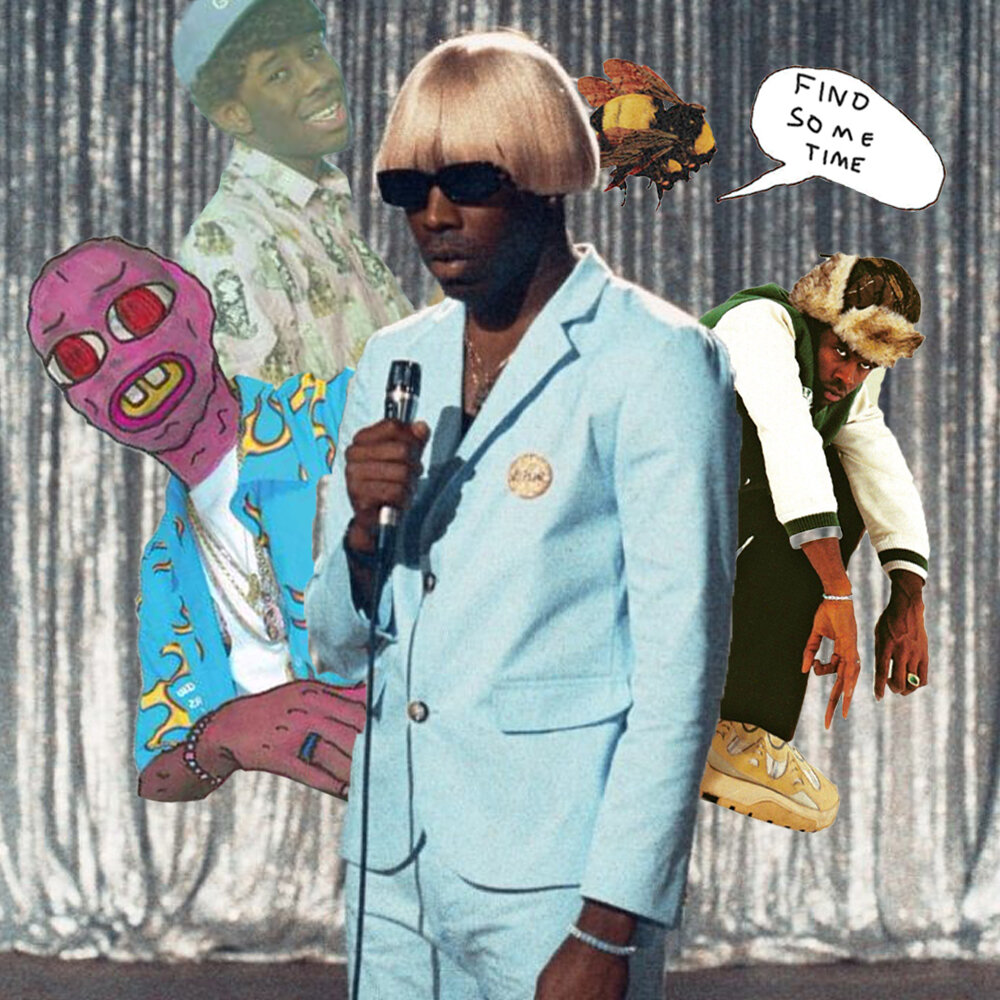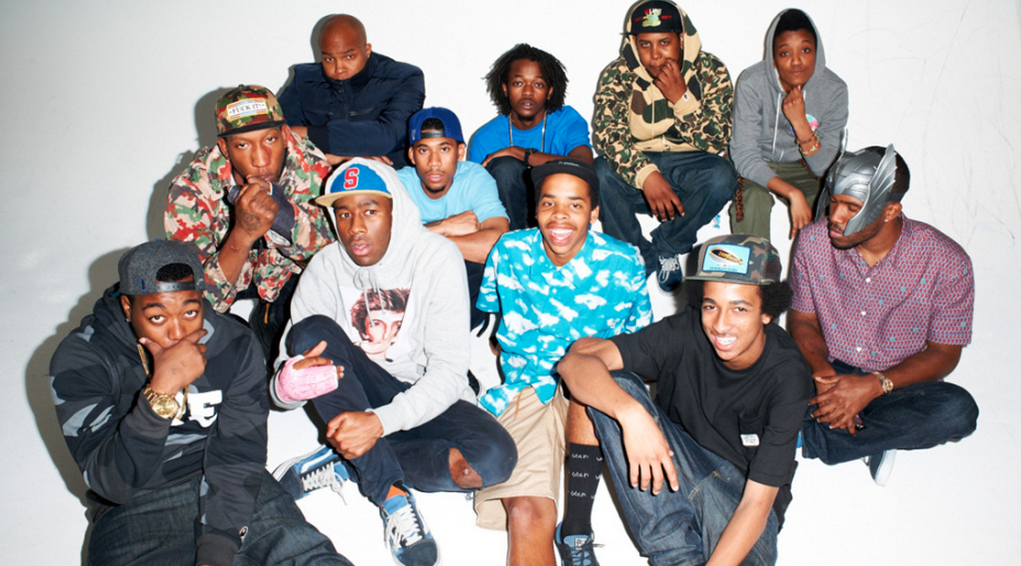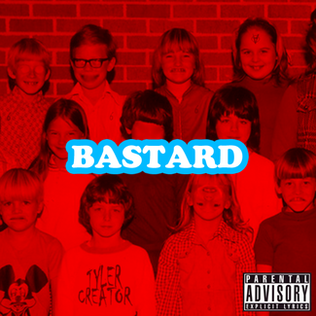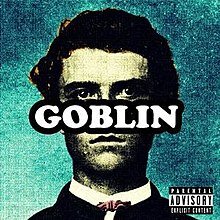A Look Into the Evolution of Tyler, the Creator
collage by Mikayla Alpert
Tyler, the Creator is a lot of things – rapper, singer, songwriter, producer, fashion designer, video director, cartoon creator – but stagnant is not one of them. He’s an artist and innovator that truly lives up to his name through his eccentric and unapologetic approach to creation. When Tyler first stepped onto the music scene in the late 2000s not everyone was able to realize or truly appreciate his genius, due to the controversy surrounding the violent and offensive nature of his music and videos. As the years have passed and with every new album, we are able to see the growth that Tyler has undergone both personally and artistically. In recent years people have come to respect Tyler not only for his music but his range of different projects. Tyler turned 30 last month on March 6th. As he enters into a new decade in his life, let’s take a closer look at his metamorphosis over the years.
Odd future
Tyler’s career began in the late 2000s when he co-founded the rap collective Odd Future Wolf Gang Kill Them All (OFWGKTA), better known as Odd Future. The Los Angeles group was one of the first rap collectives born from the age of the internet and were known for their “skate rat-styled rap”, YouTube videos, and trendy clothing brand. The group was composed of ten members and launched the careers of not only Tyler, but other members including Frank Ocean, Syd the Kyd, and Earl Sweatshirt. By 2011, the group had released 12 full-length albums online. Along with their success came tons of controversy, as their lyrics were sometimes homophobic and misogynistic and included depictions of murder, kidnapping, and sexual assault. Tyler and the group stated that their shock factor was a gimmick, but nonetheless, it still received lots of negative attention. The group was even banned from entering New Zealand to perform, who stated they were a “potential threat to public order and the public interest.” The group has since disbanded but their influence is evident in the success of their surviving members, most importantly, Tyler.
Bastard
On Christmas day of 2009, Tyler dropped his first mixtape, Bastard, which he produced himself. The album is chaotic and foul-mouthed and gives us a glimpse into Tyler’s dark genius. The opening title track sets up the tone for the rest of the record as we hear Tyler on the piano singing, “This is what the devil plays before he goes to sleep.” He introduces the character Dr. TC, the low-pitched, demon voiced school therapist Tyler is sent to, and we listen in on their session as Tyler describes himself as “depressed”, “possessed”, and “satan’s son”. The album has the same violent depictions of rape, sexual assault, and murder, but Tyler also talks about his absent father. It’s here that we begin to see how powerful of a storyteller Tyler truly is, as many of the characters and tropes would be seen again in his later albums. Despite its controversial subject matter, Bastard was ranked 32nd on Pitchfork’s list of Top Albums of 2010. On the mixtape’s 10th anniversary Tyler said in a note on Instagram “I had ideas, an unmeasurable amount of energy and wanted to piss off/get a reaction from anyone who had ears.” He added, “I was 18, although a lot of these songs were made when I was 16/17.”
Goblin
Tyler kicks off his breakout studio album, Goblin, by venting to Dr. TC about fame, message boards, critics, hype, expectations, media scrutiny, and being a role model. Some listeners saw this as giving a voice to his mental health struggles and frustrations with society, while others found those moments to be overshadowed by the homophobia and misogyny within the album’s lyrics. Tyler has since disavowed most of the record with the expectation of a few tracks. However, this is the album that broke Tyler into the mainstream, and it contains classic tracks such as “Yonkers,” “She” featuring Frank Ocean, and “Analog”. When Tyler released the music video for “Yonkers”, in 2011 it received widespread media attention as it showed Tyler eating a cockroach and vomiting it up, and then going on to commit suicide by hanging himself. The video and single skyrocketed him into fame and helped him to win a VMA for Best New Artist.
Wolf
On Tyler’s second studio album, we begin to see Tyler mature as he pulls back the curtain and shows us the talented introvert that he truly is. However, we still get the same cynicism and juvenilia that we often come to expect from Odd Future members. On this record his growth as a producer, composer and arranger, is evident throughout. The album overall sounds beautiful and contains some of Tyler’s best songwriting. Wolf is dark like his past records, with Tyler addressing not handling the absence of his father, longing for his grandmother after her death, standing up to bullies, and dealing with fame. Tyler also constructs an elaborate narrative throughout the album that centres around the love triangle of three characters: Wolf, Salem, and Sam. Tyler released and directed a movie trailer titled “Wolf” under the name Wolf Haley, which is presumed to be about the album’s narrative. Unfortunately, Tyler later told fans that it would never be released. The album’s final track “Lone”, marks the last appearance of Dr. TC.
Cherry Bomb
Tyler dropped his third studio album Cherry Bomb in April of 2015. On this record we see Tyler focus on diversifying the genre in his music as he inputs elements of rock, neo-soul, jazz and punk. It also explores a much gentler side of Tyler, with its filtered guitar riffs and feel-good lyrics. He shifts to a much more optimistic tone than we have seen from his past work, expressed through the loud abrasive production intentionally made to reflect a child-like sense of freedom and happiness. Tyler seems to embrace his newfound fame on this record and shows us more of his vulnerable side. While many critics praised Tyler for his music versatility, others criticized that the record was too cheerful and musically immature. Some of his early fans have even expressed their distaste for this shift. However, Tyler has rebuked these reviews and stated that he refuses to apologize for writing music that reflects his newfound optimism and hopeful approach. The album features artists such as Charlie Wilson, Cherry Glazer, Sydney Bennet, Cole Alexander, Chaz Bundwick, ScHoolboy Q, Wanya Morris, Roy Ayers, Kali Uchis, Austin Feinstein, Lil Wayne, Pharell Williams, and Kanye West. Tyler has stated in the past that Cherry Bomb is his favourite album.
Flower Boy
“I rock, I roll, I bloom, I grow”. These lyrics perfectly encapsulate the energy behind Tyler’s critically acclaimed album Flower Boy. The album has often been cited as a turning point in his career, and as the “maturation” of Tyler. Flower Boy is an ode to Tyler’s growth as a person, producer, and artist. He continues to showcase his vulnerability on this album, exploring a number of deep-seeded struggles such as his sexuality on the track “Garden Shed”. The lyrics, “I’ve been kissing white boys since 2004”, came as a shock to many considering his past use of homophobic slurs. However, despite this Tyler has been alluding to his sexuality on several occasions in the past.
This album is more melodic, seen in tracks like “See You Again” with Kali Uchis, but the dark genius that shadowed much of his early work still looms on tracks like “Who Dat Boy” with A$ap Rocky. The music video starts off with Tyler blowing his face off and then bloodily stumbling to his neighbors (A$ap Rocky) to perform a face plant. No matter how touching and vulnerable his new music may be, Tyler will always remain an intriguing and twisted storyteller. Flower Boy earned Tyler his first solo Grammy nomination.
IGOR
Tyler’s latest album IGOR is his best work yet. It’s the first number one album to ever be produced, written, and arranged by a single artist, and the single “Earfquake” peaked at number 13 on the Billboard charts. IGOR won Best Rap album at the 2020 Grammys, earning Tyler his first-ever Grammy award. Tyler’s progression over the years has led him to what is undoubtedly his most emotional project yet. The album is an emotional rollercoaster, as it takes through the relationship of the character IGOR and his lover: from the moment he realizes he has feelings on “I THINK,” to forcing a strained friendship when it all ends on “ARE WE STILL FRIENDS?”. Instead of the riotous, punk-rap style that dominated past albums, IGOR presents us with a genre-bending sound that’s heavily influenced by hip-hop, jazz, R&B, and pop. Tyler achieves this through not only a softer production style but through a greater focus on his own singing. On IGOR Tyler remains true to his past chaotic nature, while also introducing new themes and sounds that showcase his maturation and set the stage for his future success.







